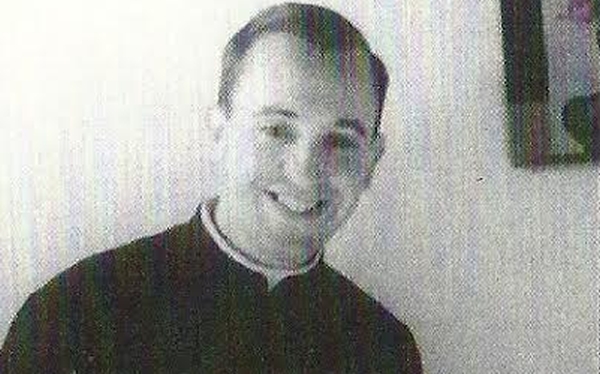University Libraries

About Francis
“Mercy” is Pope Francis’s watchword. At a recent class for faculty and staff given by Fr. Jim Fitz and Joan Wagner, from the Office for Mission and Rector, to discuss Francis’s hopes for Catholic education, we learned that whereas Benedict XVI spoke often of faith and reason, Francis speaks most often of mercy.
It is no surprise then, that when Pope Francis recently announced that the Catholic Church will celebrate an Extraordinary Jubilee Year beginning on Dec. 8, the Feast of the Immaculate Conception, he named mercy as its theme.
Curious, I picked up a copy of the pope’s Evangelii Gaudium (2013), available in the Leisure Reading collection at Roesch. In this apostolic exhortation, known in English as The Joy of the Gospel, he says he does not believe faith should be held in an inner sanctum of personal life. He speaks of now as a turning point, where there is no place for a culture of “exclusion” and people who “feel superior to others because they observe certain rules.”
“An authentic faith – which is never comfortable and never personal – always involves a deep desire to change the world, to transmit values, to leave the earth somehow better than we found it,” the pope says. He gives as examples Saint Francis of Assisi and Blessed Mother Teresa. They did not contemplate their faith, but went out into the world. He says, “Each individual Christian and every community is called to be an instrument of God for the liberation and promotion of the poor, and for enabling them to be fully a part of society.”
I still wanted to know more about the man who wrote this, who symbolically refuses to wear the papal red shoes and mozzetta, and who lives in simple apartments in the Vatican guesthouse rather than the papal apartments in the Apostolic Palace. Again I went to the Roesch collection. I checked out a copy of Pope Francis: Life and Revolution (2013). The biography was written by Elisabetta Piqué, an Argentinian reporter who has known him well for years as Padre Jorge of Buenos Aires. In the biography she lets hundreds of people who know Jorge Bergoglio speak; people who knew him as a teacher, as the Provincial for the Society of Jesus, as Archbishop, and during all the years in between. Many have stories of kindness or of his effect on them as a role model.
Ernesto Giobando, a seminarian at the Colegio Máximo, where Bergoglio was rector, remembers complaining to him about the labor he was asked to do. “I joined the Society to study, not to take care of pigs!” But Giobando realized that Bergoglio cared for the pigs too; he sometimes cooked dinner or cleaned, while also arranging soccer tournaments for neighborhood children and visiting the poorest barrios. He did these things in addition to his administrative duties.
He has had many enemies through the years as well. During the Perón years he worked quietly to protect the Jesuits in his care, but was accused of working with the government. There were some years that he spent away from Buenos Aires, in an exile of sorts, arranged by other members of his order who did not like his leadership style. Even so, he does not seem to shy away from controversies and difficult situations. He speaks his mind.
One story that especially impressed me was when he speaks of a poor young woman who could have made the choice to end her pregnancy “but had the courage,” he says, to have the baby. She went on a pilgrimage from parish to parish to have her child baptized. “In our ecclesiastic region there are priests who do not baptize the children of single mothers because they have not been conceived in holy matrimony. Those are today’s hypocrites -- those who have clericalized the Church, who deny salvation to the people of God.”
There are many more books in the library about this fascinating man and some by him, including The Church of Mercy (2014).
- Joan Milligan, Catalog and Metadata Specialist
Photo from the inside cover of the book, Pope Francis: Life and Revolution (Loyola Press, 2013).
